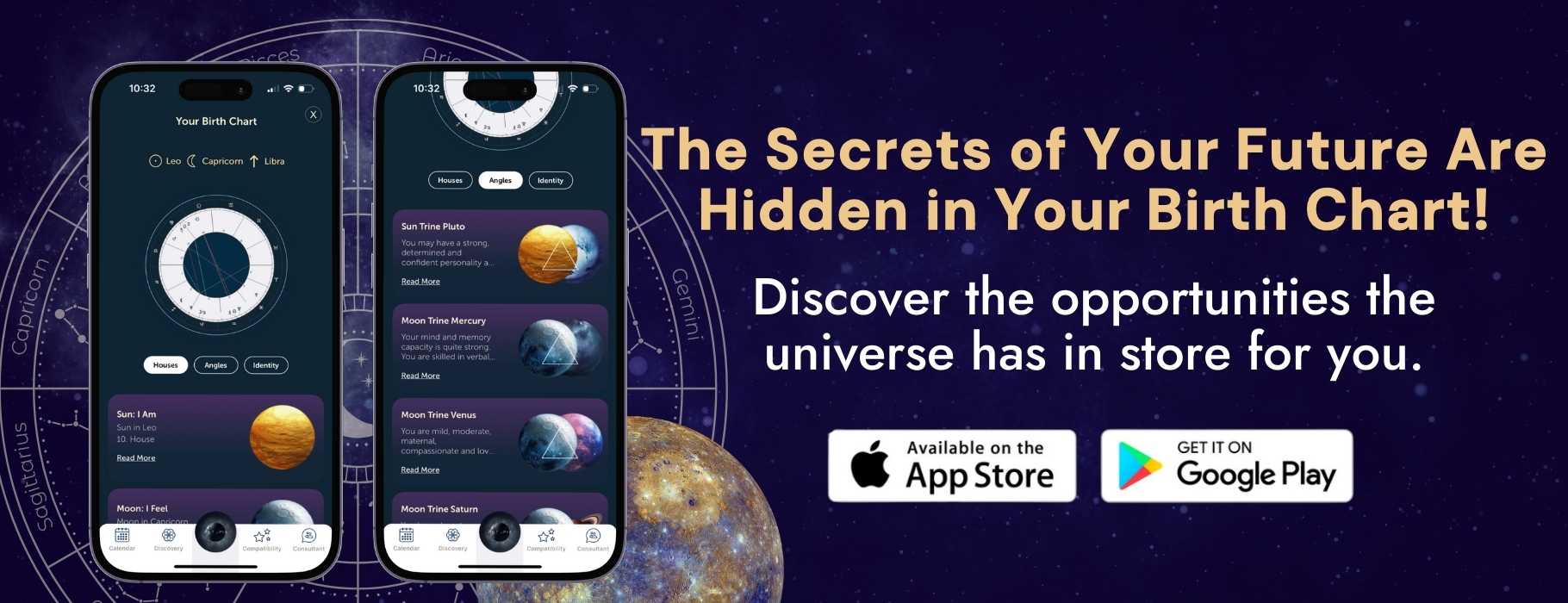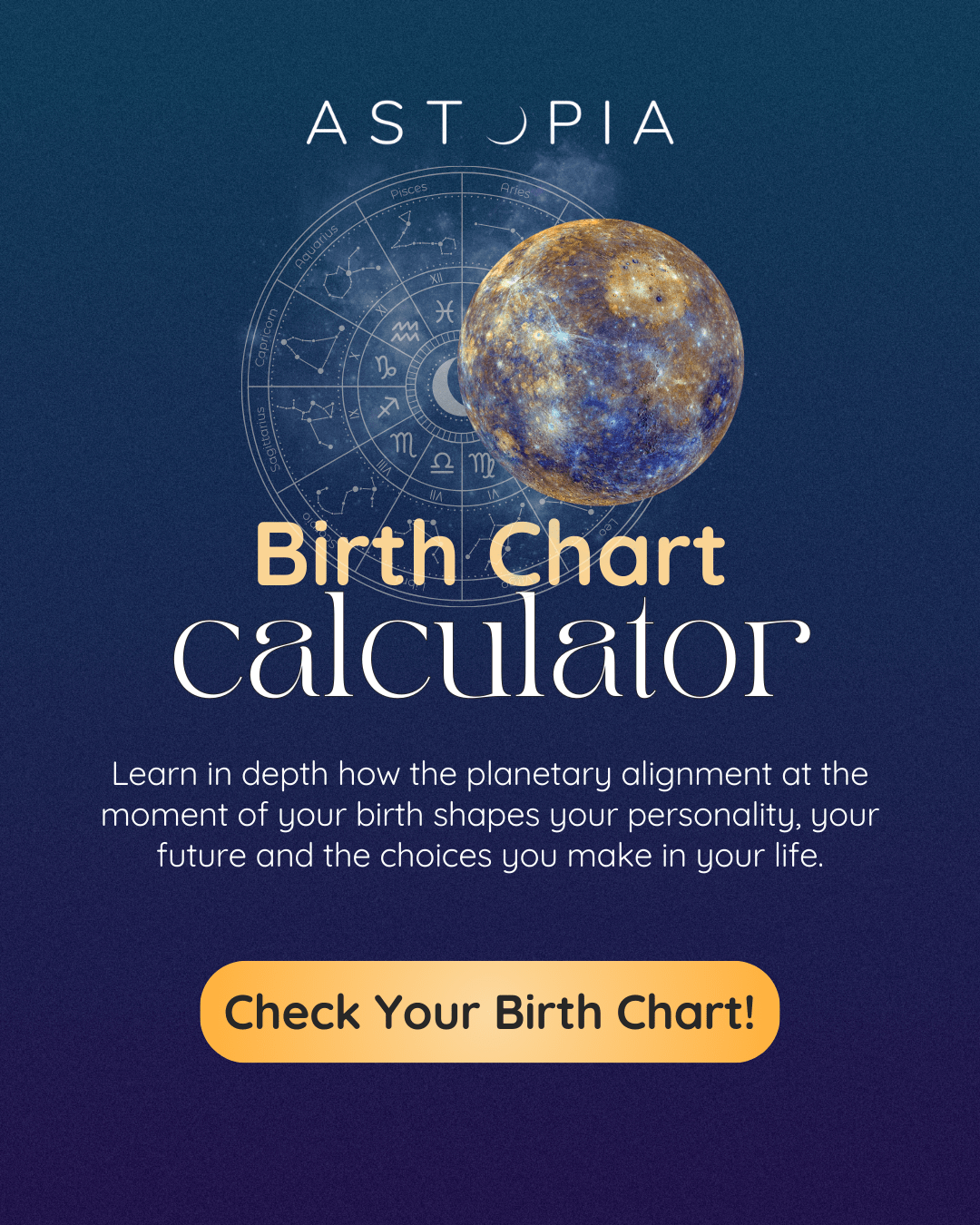
11/8/2024
Author: Astopia TeamOrbital Movements of the Planets: The Impact of Astrological Determinants on Our Lives
In astrology, the orbital movements of the planets are studied not only scientifically but also for their effects on our personal and social lives. These movements refer to the paths that the planets in the solar system follow around the sun in certain cycles. The changes in the orbits of the planets and the positions of these planets interact with the planets in our natal chart and affect different areas of our lives, offering insights into natal chart retrogrades. Understanding the orbital movements guides us to know ourselves better and perceive the events around us more deeply.
What is the Orbital Motion of the Planets and How Does It Happen?
The planets in our solar system revolve around the sun along specific elliptical orbits. Elliptical orbits mean that the orbits of the planets are not literally circular, but a slightly elongated oval. These elliptical structures cause the planets' distances from the sun to change constantly, so each planet moves at different distances and speeds throughout the year. Orbital speeds and distances from the sun also create a marked difference in the planets' energies.
For example, the orbits of planets closer to the sun, such as Mercury and Venus, bring faster and shorter duration effects; these planets complete a revolution around the sun faster. Therefore, short-term events such as Mercury's retrograde periods directly affect our daily lives in terms of communication, trade and information flow. In contrast, the orbits of distant planets like Jupiter and Saturn are wider and slower-moving; these planets offer long-term effects on societal matters and drive social development. For example, Saturn's stay in a sign for about two and a half years has a long-term effect on issues such as discipline, responsibility and exams in the lives of individuals.
From an astrological point of view, the speed and orbital movements of the planets are important because these movements determine how and when the planets will show their effects. The fast movement of the planets close to the sun creates more immediate and intense effects, while the slow moving planets offer more permanent and deeper effects. The inner planets Mercury, Venus and Mars affect our individual lives more directly, while the outer planets Jupiter, Saturn, Uranus, Neptune and Pluto affect the wider society and create long-lasting changes in the lives of individuals.
For example, Jupiter's slow motion gives it the ability to create long-term opportunities as the planet of “growth” and “expansion”. This planet of expansion completes its tour in each sign in about 12 years and brings luck, opportunity and expansion to the people in that sign during that year. Saturn, on the other hand, is the planet of discipline and trials, with an opposite influence; its movement is more restrictive, instructive and limiting. Saturn's slow motion produces dominant influences in the sign for two and a half years, during which time it tests the ability of those in that sign to overcome difficulties, assume responsibility and endurance.
What are the Astrological Effects of Orbital Movements?
The orbital movements of the planets have a great astrological impact on people's moods, emotions, energies and relationships. For example, retrograde movements of the planets, i.e. periods when they seem to be going backwards, create opportunities to go back to the past, introspect or revisit current issues. During retrograde periods, energies become more internalized; instead of new beginnings, unfinished business is completed or reviewed.
During these periods, even though the orbits of the planets in the solar system move in the same plane, the effects of what appear to be retrograde movements differentiate the direct and indirect influence of the planet. For example, Mercury's retrograde periods increase the possibility of disruptions in communication, travel and technology. This period is characterized by daily disruptions such as malfunctions in electronic devices, misunderstandings or travel delays and encourages people to introspect. Venus retrograde may cause us to revisit issues from the past in matters of love, relationships and values.
Meaning and Significance of the Orbital Movement of Each Planet
Each planet has its own meaning and energy; these meanings are shaped by its orbital movements and are reflected in our daily lives in different ways:
- Mercury: Represents communication, thought, learning and commerce. Mercury's fast movement constantly renews our mental processes and communication style. During Mercury retrograde periods, unresolved issues or misunderstandings from the past may come to light.
- Venus: The planet of love, relationships, aesthetics and values. Venus' orbital movements create different effects on our love and relationship dynamics. Venus retrograde periods can initiate processes such as bringing old relationships to the agenda, questioning values in existing relationships and reconsidering personal tastes.
- Mars: Symbolizes action, energy and struggle. The fast and direct effects of Mars stand out in matters related to courage, leadership and passion. Mars orbit is elliptical and this causes the planet's energy to manifest in an intense and sudden way. Mars retrograde periods bring inner conflicts, low energy and turning inward.
- Jupiter: The planet of growth, expansion and wisdom. Jupiter's wide orbit brings long-term optimism, opportunities and prosperity in social matters. The fact that this planet completes a 12-year cycle in a sign gives each sign regular opportunities for luck and growth.
- Saturn: The planet of restrictions, responsibility and discipline. Saturn's slow motion creates tests and challenging experiences in the sign it is in. Saturn's long-term effects test the patience, endurance and discipline of individuals.
- Uranus, Neptune and Pluto: These planets rule collective energies and create sudden, intense or transformation-oriented influences in the lives of individuals. For example, Uranus symbolizes sudden changes and the desire for liberation, while Neptune represents imagination and Pluto deep transformation.
How Do the Orbital Movements of the Planets Affect Our Personal Life?
The orbital movements of the planets interact with the planets in each individual's birth chart, bringing unique themes in certain periods of life. These interactions are called transits and according to the movements of the planets, different topics come to the fore in an individual's life. For example, Jupiter entering into a harmonious aspect with the Sun in a person's natal chart can bring luck and opportunities. Saturn transits, on the other hand, are often challenging, but they also reinforce discipline, perseverance and a sense of responsibility.
The distances and speeds between the orbits of the planets determine how and how fast the energies act. The smaller distances between the orbits of the inner planets indicate that the energies of these planets offer more individual and short-term effects. The fast and short orbits of inner planets like Mercury, Venus and Mars cause them to directly affect our personal lives. The orbital cycles of these planets determine the relationship dynamics we experience in daily life, our communication style and our motivation level.
For example, disruptions and misunderstandings during Mercury retrograde periods can create short-term problems, while Venus retrograde is linked to situations such as old loves coming up again or conflicts emerging in existing relationships. The orbital movement of Mars also affects our energy levels and our willingness to take initiatives; retrograde periods are characterized by an inward-looking energy and people may face more internal struggles.
On the other hand, the greater distances between the orbits of outer planets cause their effects to be more far-reaching and long-term. The slow movement of planets such as Jupiter, Saturn, Uranus, Neptune and Pluto makes their energies effective on a social level and on deeper issues. For example, when Uranus stays in a sign for about seven years, it creates the need for freedom, sudden changes and innovative breakthroughs in the lives of individuals in that sign. Neptune, on the other hand, stimulates inspiration, creativity and intuitive powers, but can also bring effects such as disappointment and illusions. The orbital cycles of these planets can symbolize radical changes and spiritual transformations in the lives of individuals.
In astrology, the orbital movements of the planets are interpreted together with the aspects between the planets in the natal chart. These interpretations reveal the relationship between the current positions of the planets and the positions in the person's natal chart, indicating which issues will come to the fore in certain periods.
Understanding the orbital movements also deepens the effects of the planets in our natal chart. The orbital characteristics of each planet strengthen the astrological symbolism of that planet. For example, the fact that Pluto is the slowest moving and most distant planet makes it associated with deep and lasting effects such as transformation and rebirth. Pluto's transits in the natal chart usually signify long and difficult periods of transformation, during which a person has the opportunity to discover his or her inner strength and to embark on radical changes.
By being aware of the positions and retrograde movements of the planets along their orbits, we can both get to know ourselves better and look at the events we encounter in our lives from a broader perspective. By using orbital movements as a guide, astrology supports each individual to gain a deeper awareness in their journey of self-discovery. This awareness enables us to respond more harmoniously and consciously to the energies in our lives and allows us to move forward in harmony with the cosmic cycles of the planets.





